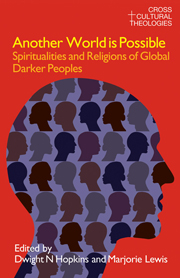Book contents
- Frontmatter
- Dedication
- Contents
- Acknowledgements
- Contributors
- Introduction
- Part I India
- Part II Japan
- Part III Australia
- Part IV Hawaii
- Part V England
- Part VI South Africa
- Part VII Botswana
- Part VIII Zimbabwe
- 12 Ritual and Spirituality among the Shona People
- 13 Economic “Shortage” as a Theologico-political Problem in Zimbabwe
- Part IX Ghana
- Part X Cuba
- Part XI Jamaica
- Part XII Brazil
- Part XIII USA
- Endnotes
- Select Bibliography
- Index of Subjects
- Index of Names
13 - Economic “Shortage” as a Theologico-political Problem in Zimbabwe
from Part VIII - Zimbabwe
- Frontmatter
- Dedication
- Contents
- Acknowledgements
- Contributors
- Introduction
- Part I India
- Part II Japan
- Part III Australia
- Part IV Hawaii
- Part V England
- Part VI South Africa
- Part VII Botswana
- Part VIII Zimbabwe
- 12 Ritual and Spirituality among the Shona People
- 13 Economic “Shortage” as a Theologico-political Problem in Zimbabwe
- Part IX Ghana
- Part X Cuba
- Part XI Jamaica
- Part XII Brazil
- Part XIII USA
- Endnotes
- Select Bibliography
- Index of Subjects
- Index of Names
Summary
The crises have engulfed the working world, the learning world, the consumer world, the world of the supermarket and even of sport. The economy limps along, agriculture crawling, tourism virtually defunct, manufacturing crippled, and mining, the one still flickering light of the economy, under recent assault from government policies. Electricity comes and goes at will, water likewise in many places; fuel supplies (black market only) are erratic and prices exploitative. Schools are places of confusion, teachers demoralized, pupils unable to afford textbooks if they manage to pay fees, and only finding bus fare for half the school days. Courts barely function, police cells are filthy putrid hell holes, prisons even worse.
In this article I offer some reflections on what on the face of it are rather pedestrian themes. Zimbabwe is frequently in the news these days. All of it is bad news. The picture that emerges, whether one reads OpenDemocracy, the BBC, the New York Times, etc., is one in which Zimbabwe is a failed state, a state in almost irrecoverable collapse. The reporting and the official response to it in Zimbabwe are framed by the rhetoric of blame. The international community blames Zimbabwe for having “expropriated” white commercial farms outside of the “rule of law,” i.e., without compensation and sometimes by force. The Zimbabwe government has responded by blaming its political and economic distress on a western plot to topple or remove it from power.
- Type
- Chapter
- Information
- Another World is PossibleSpiritualities and Religions of Global Darker Peoples, pp. 190 - 204Publisher: Acumen PublishingPrint publication year: 2009



